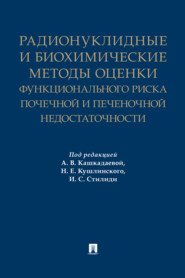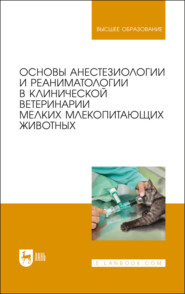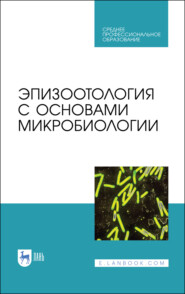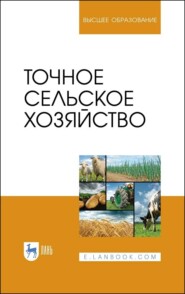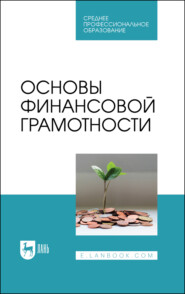По всем вопросам обращайтесь на: info@litportal.ru
(©) 2003-2024.
✖
Метод. Московский ежегодник трудов из обществоведческих дисциплин. Выпуск 4: Поверх методологических границ
Автор
Год написания книги
2014
Настройки чтения
Размер шрифта
Высота строк
Поля
Автономов В.С. От «экономического империализма» к стремлению к взаимообогащению // Общественные науки и современность. – М., 2010. – № 3. – С. 173–176.
Арнольд В.И. Теория катастроф. – М.: УРСС, 2004. – 98 с.
Вайнгарт П. Отношение между наукой и техникой: социологическое объяснение // Философия техники в ФРГ. – М., 1989. – 138 с.
Гиндилис Н.Л. Из истории советского науковедения: 70?е годы // Науковедческие исследования, 2012 / РАН. ИНИОН – М., 2012. – С. 161–215.
Гуриев С.М. Три источника – три составные части экономического империализма // Общественные науки и современность. – М., 2008. – № 3. – С. 134–141.
Гусев C.C. Математизация науки. Энциклопедия эпистемологии и философии науки. – М.: Канон+; РООИ «Реабилитация», 2009. – 1248 с.
Ефременко Д.В. Концепция общества знания как теория социальных трансформаций: достижения и проблемы // Вопросы философии. – М., 2010. – № 1. – С. 49–62.
Князева Е.Н. Трансдисциплинарные когнитивные стратегии в науке будущего // Вызов познанию: Стратегии развития науки в современном мире. – М., 2004. – С. 29–48.
Койре А. Очерки истории философской мысли. О влиянии философских концепций на развитие научных теорий. – М.: Прогресс, 1985. – 140 с.
Кун Т. Структура научных революций. – М.: Прогресс, 1975. – 288 с.
Лебедев С.А. Философия науки. – М.: Академический проект, 2010. – 731 с.
Либман А.М. Границы дисциплин и границы сообществ (Два аспекта экономического империализма) // Общественные науки и современность. – М., 2010. – № 1. – С. 134–146.
Мирский Э.М. Междисциплинарные исследования и дисциплинарная организация науки. – М.: Наука, 1980. – 303 с.
Огурцов А.П. Дисциплинарная структура науки. – М.: Наука, 1988. – 256 с.
Олейник А.Н Расширенная версия теоремы Коуза и пределы «экономического империализма» // Общественные науки и современность. – М., 2008. – № 4. – С. 147–162.
Поппер К. Объективное знание. Эволюционный подход / Пер. с англ. Д. Г. Лахути. – М.: Эдиториал УРСС, 2002. – 384 с.
Пригожин И., Николис Г. Познание сложного. – М.: УРСС, 2008. – 352 с.
Радаев В.В. Экономические империалисты наступают! Что делать социологам? // Общественные науки и современность. – М., 2008. – № 6. – С. 116–123.
Федотова В.Г. Штарнбергская группа (ФРГ) о закономерностях развития науки // Вопросы философии. – М.,1984. – № 3. – С. 125–133.
Шилков Ю.М. Дисциплинарный образ современной науки. Новая философская энциклопедия: В 4 т. / Ин-т философии РАН; Нац. обществ.-науч. фонд; Предс. Науч.-ред. совета В.С. Степин. – 2?е изд., испр. и допол. – М.: Мысль, 2010. – Режим доступа: http://iph.ras.ru/enc.htm (Дата обращения: 10.11.2013.)
Щедровицкий Г.П. Философия. Наука. Методология. – М.: Школа культурной политики, 1997. – 656 с.
Artmann S. Historische Epistemologie der Strukturwissenschaften. – M?nchen: Wilhelm Fink Verlag, 2010. – 359 S.
Balsiger P.W. Transdisziplinarit?t. Systematisch-vergleichende Untersuchung disziplinen?bergreifender Wissenschaftspraxis. – M?nchen: Wilhelm Fink Verlag, 2005. – 326 S.
Bourbaki N. The architecture of mathematics // American mathematic monthly. – N.Y., 1950. – Vol. 67. – P. 221–223.
Checkland P. From optimizing to learning: A Development of Systems Thinking for the 1990s // The journal of the operational research society. – Oxford; N.Y., 1985. – Vol. 36. – P. 757–767.
Evolution of semantic systems / K?ppers B.O., Hahn U., Artmann S. (eds.). – Berlin: Heidelberg: N.Y.: Springer, 2013. – 232 P.
Fischer K. Interdisziplinarit?t im Spannungsfeld zwischen Forschung, Lehre und Anwendungsfeldern // Interdisziplinarit?t und Institutionalisierung der Wissenschaft: Wissenschaftsforschung. Jahrbuch 2010 / Hrsg. Fischer K., Laitko H., Parthey H. – Berlin: Wissenschaftlicher Verlag, 2011. – S. 37–58.
Fleischer L.-G., Komplexit?t, Inter- und Transdisziplinarit?t // LIFIS ONLINE. – Mode of access: http://www.leibniz-institut.de/archiv/fleischer_15_04_2010.pdf (Дата обращения: 15.04.2013.)
Fuchs-Kittowski K., Wohlgemuth V. Umweltinformatik und Umweltforschung in ihrer Institutionalisierung und Interdisziplinarit?t // Interdisziplinarit?t und Institutionalisierung der Wissenschaft: Wissenschaftsforschung. Jahrbuch 2010 / Hrsg. Fischer K., Laitko H., Parthey H. – Berlin: Wissenschaftlicher Verlag, 2011. – S. 99–153.
Haken H. Synergetik. – Berlin; Heidelberg; N.Y.: Springer-Verlag, 1982. – 382 S.
Handbuch Wissenschaftssoziologie / Maasen S., Kaiser M., Reinhart M., Sutter B. (eds.). – Wiesbaden: VS-Verlag f?r Sozialwissenschaften, 2012. – 485 S.
Maasen S. Wissenssoziologie – Eine Einf?hrung. – 2 ed. – Bielefeld: transcript, 2009. – 126 S.
Hummell H.-J., Opp, K.-D. Die Reduzierbarkeit von Soziologie auf Psychologie. – Braunschweig: F. Vieweg, 1971. – 102 S.
Interdisziplinarit?t und Institutionalisierung der Wissenschaft: Wissenschaftsforschung. Jahrbuch, 2010 / Hrsg. Fischer K., Laitko H., Parthey H. – Berlin: Wissenschaftlicher Verlag, 2011. – 302 S.
Interdisziplinarit?t. Theorie, Praxis, Probleme / Jungert M., Romfeld E., Sukopp T., Voigt U. (eds.). – Darmstadt: WBG, 2010. – 209 S.
Krohn W. Epistemische Qualit?ten transdisziplin?rer Forschung // Transdisziplin?re Forschung. Integrative Forschungsprozesse verstehen und bewerten / Hrsg. Bergmann M., Schramm E. – Frankfurt a. Main: Campus Verlag GmbH, 2008. – S. 39–68.
K?ppers B.O. Die Einheit der Wirklichkeit. – M?nchen: Fink, 2000. – 208 S.
K?ppers B.O. Nur Wissen kann Wissen beherrschen. – Hannover: Fackeltr?ger-Verlag, 2008. – 570 S.
Laitko H. Das Max-Planck-Institut zur Erforschung der Lebensbedingungen der wissenschaftlich-technischen Welt: Gr?ndungsintention und Gr?ndungsprozess // Interdisziplinarit?t und Institutionalisierung der Wissenschaft: Wissenschaftsforschung. Jahrbuch, 2010 / Hrsg. Fischer K., Laitko H., Parthey H. – Berlin: Wissenschaftlicher Verlag, 2011. – S. 199–238.
Laitko H. Grenz?berschreitungen // LIFIS ONLINE. – Mode of access: http://www.leibniz-institut.de/archiv/laitko_08_07_12.pdf (Дата обращения: 12.06.2013.)
Laitko H. Interdisziplinarit?t als Thema der Wissenschaftsforschung // LIFIS ONLINE. – Mode of access: http://www.leibniz-institut.de/archiv/laitko_26_10_11.pdf (Дата обращения: 26.06.2013.)
Lifis online. Internet-Zeitschrift des Leibniz-Instituts f?r interdisziplin?re Studien. – Mode of access: http://www.leibnizinstitut.de/page/index.php?katID=26&folder=Wissenschaft%20im%20Kontext&archiv_offset=5 (Дата обращения: 26.06.2013.)
Luhmann N. Die Wissenschaft der Gesellschaft. – Frankfurt a. Main: Suhrkamp, 2009. – 732 S.
Mittelstra? J. Methodische Transdisziplinarit?t // LIFIS ONLINE. – Mode of access: http://www.leibniz-institut.de/cms/pdf_pub/mittelstrass_05_11_07.pdf (Дата обращения: 20.03.2013.)
Mittelstra? J. Methodische Transdisziplinarit?t // Technikfolgenabsch?tzung – Theorie und Praxis. – Konstanz, 2005. – Vol. 14, N 2. – S. 18–23.
Nowotn H., Scott P., Gibbons M. Re-thinking science. Knowledge and the public in an age of uncertainty. – Cambridge (UK), 2001. – 278 p.
Parthey H. Institutionalisierung disziplin?rer und interdisziplin?rer Forschungssituationen // Interdisziplinarit?t und Institutionalisierung der Wissenschaft: Wissenschaftsforschung. Jahrbuch 2010 / Hrsg. Fischer K., Laitko H., Parthey H. – Berlin: Wissenschaftlicher Verlag, 2011. – S. 9–36.
Pohl Ch., Hirsch Hadron G. Methodenentwicklung in der transdisziplin?ren Forschung // Transdisziplin?re Forschung Integrative Forschungsprozesse verstehen und bewerten / Hrsg. Bergmann M., Schramm E. – Frankfurt a. Main: Campus Verlag GmbH, 2008. – S. 69–92.
Robinson J. Being undisciplined: Transgression and intersections in academia and beyond // Futures. – Cedar Falls, Iowa, 2007. – Vol. 40(1). – P. 70–86.
Ropohl G. Allgemeine Systemtheorie als transdisziplin?re Integrationsmethode // Technikfolgenabsch?tzung Theorie und Praxis. – Karlsruhe, 2005. – N 2. – S. 24–31.






